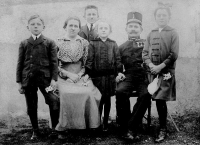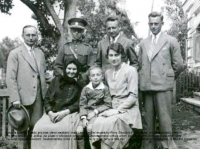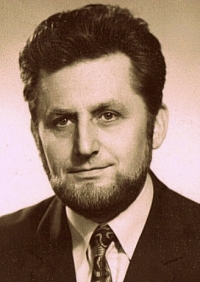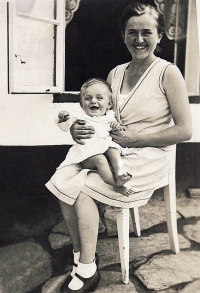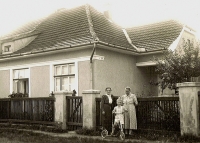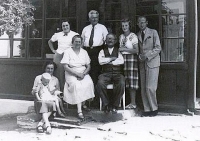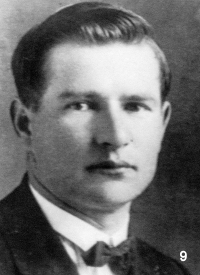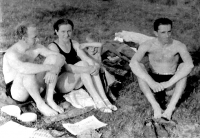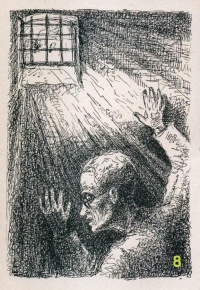Most people kept their humanity despite the war

Download image
Jan Kopeček was born on the 13th February of 1934 in Vranovská Ves in South Moravia, he spent his childhood in the nearby Jemnice. After Germans annexion of Sudeten, Vranovsk8 Ves where his grandparents lived became a part of the German Reich, Jemnice remained in the Protectorate during WWII. He grew up in a Czech-German family, his mother Marie was German, his father Jan was Czech. His father taught at school in Jemnice and he was a reserve officer of the Czechoslovak army. During the war, he joined the resistance organisation Obrana Národa [Defence of the Nation] and became the deputy commander for the Jemnice area. Two years later, he and ten more members of the Defence of the Nation of Jemnice area were arrested and sentenced to six years imprisonment for high treason against the Greater German Reich. He served his term in several prisons in Germany and he was the sole survivor of all who were arrested. Marie Kopečková used all the possibilities her German nationality could bring and for the whole duration of WWII, she organised help for the relatives of other Czech resistance fighters. Despite that, after the end of WWII, she and her son were forced to wear a white armband, sign of the subjugated German nation. She was even arrested without any reason and she was released only after her husband returned home from the German prison. Jan Kopeček has many memories about war time and events following the end of the war in Jemnice and the surrounding area. They are about the Czech resistance and about the liberation of Jemnice by the Red Army, relationships between the Czechs and Germans and expulsion of the latter. After WWII, he graduated from the high school and then he studied at the Technical University in Plzeň. After having graduated, he started to work in the Škoda factory and he stayed in Plzeň. He worked on turbine construction, his task was development of systems of automatic management. Already back at the university, the counter-intelligence was interested in him, in 1969, they contacted him and wanted him to cooperate with them, which he refused. In the early 1980’s, he got another offer and he refused complicityfor the second time, which brought some backlash, he was not able to do any expert-level work in his field any more. At present (2002), he is retired and he lives with his wife, a physician, in Plzeň; he has two adult daughters.
